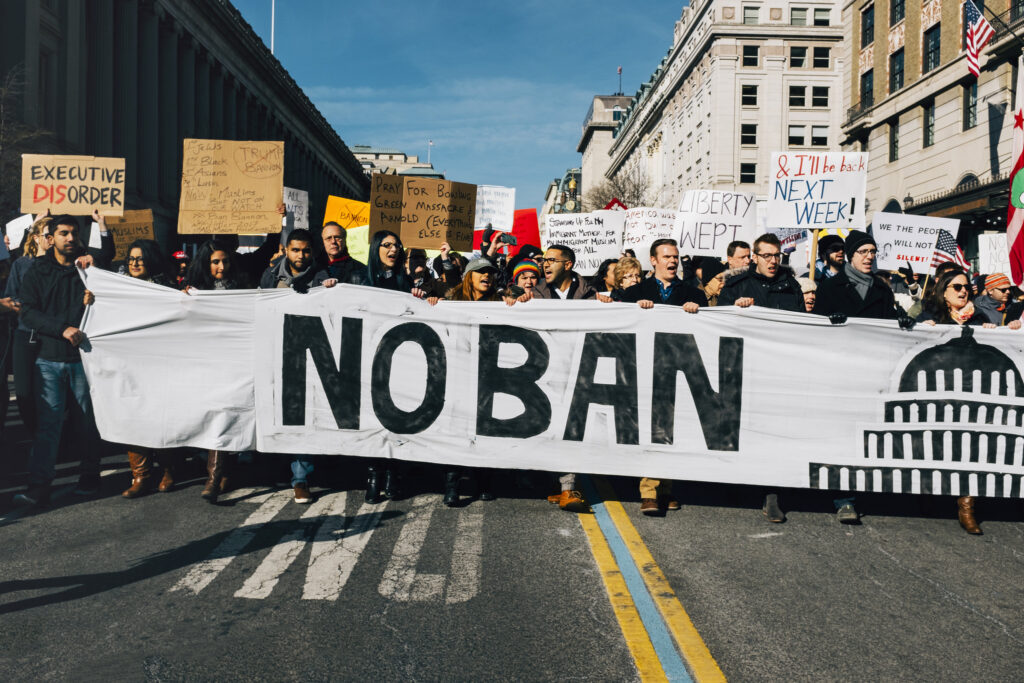How Trump's Deportation Policies and Travel Bans Have Marginalized Arab American Doctors

By: Jack Moran / Arab America Contributing Writer
The deportation policies and travel bans enacted during the Trump administration have had far-reaching consequences on various communities, particularly Arab American doctors. The health sector, which has long benefited from a diverse workforce, is grappling with the repercussions of these policies, which have not only undermined the professional lives of medical professionals but also contributed to a broader climate of fear and discrimination. This article explores how the Trump administration’s immigration policies disproportionately impacted Arab American doctors, marginalizing them in their professional, personal, and social lives.
The Travel Bans: Targeting Muslim-majority Countries
One of the most contentious and impactful policies of the Trump administration was the so-called “Muslim Ban,” which was initially enacted through an executive order in January 2017. The ban targeted nationals from seven predominantly Muslim-majority countries: Iran, Iraq, Libya, Somalia, Sudan, Syria, and Yemen. Though the list of countries changed and expanded over time, the core impact was the targeting of individuals from nations associated with a large Arab population, especially those from the Middle East.
For Arab American doctors, this policy meant that many were suddenly barred from traveling freely to visit family, attend conferences, or pursue career opportunities abroad. This restriction was particularly damaging for those who had close ties to their countries of origin, as it disrupted both their personal lives and professional development. Many Arab American doctors, who had long lived and worked in the U.S., found themselves separated from family members or unable to attend critical medical conferences where they could further their education and network with peers.
Moreover, the travel ban created a chilling effect, particularly for those on temporary visas, such as H-1B holders, which many Arab American doctors rely on to practice medicine in the U.S. The fear of being barred from re-entry into the U.S. if they traveled abroad led many professionals to limit their movement, further isolating them from their international colleagues and the broader medical community.
Deportation Policies: A Fearful Climate for Arab American Doctors
Under President Trump, aggressive deportation policies also created a climate of fear and uncertainty. While the administration’s focus was largely on undocumented immigrants, the policies disproportionately affected Arab American doctors with immigrant backgrounds, especially those from countries that had been subject to the travel bans.
Arab American doctors, particularly those from Middle Eastern and North African countries, were disproportionately affected by increased scrutiny from U.S. immigration enforcement agencies. Many doctors who had legally entered the U.S. on visas faced long delays in obtaining green cards or were placed in extended legal limbo as the administration ramped up efforts to deny immigrant visas and green cards. The sense of insecurity and the constant threat of deportation made it difficult for Arab American doctors to focus on their careers and patient care, as they lived under the shadow of potential legal battles.
In some instances, deportation policies led to the forced departure of skilled medical professionals. This not only represented a personal loss for those affected but also a public health loss, as Arab American doctors, particularly those in underserved areas, played a crucial role in addressing health disparities and providing care to minority communities. The removal of these professionals from the workforce exacerbated existing healthcare shortages, especially in specialty fields such as pediatrics, oncology, and psychiatry, where Arab American doctors were well-represented.
The Long-Term Impact on U.S. Healthcare
The consequences of Trump’s deportation policies and travel bans are not only felt by the Arab American doctors directly affected but by the broader U.S. healthcare system. Arab American physicians are an integral part of a diverse medical workforce that helps address the healthcare needs of an increasingly multicultural society. As many Arab American doctors were pushed to the margins of the profession or left the country, the U.S. lost valuable expertise in various medical specialties. In many cases, these doctors served as the primary healthcare providers for immigrant communities, including those from the Middle East and North Africa.
As the healthcare system continues to battle issues like physician shortages, particularly in underserved areas, the loss of Arab American doctors represents a missed opportunity for both public health and community engagement. The exodus of skilled medical professionals further exacerbates disparities in healthcare access, especially in urban areas with large immigrant populations.
Check out our blog here!








